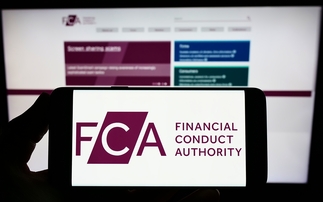The Financial Conduct Authority (FCA) has clamped down on financial services firms since its inception, but how have investment businesses fared under its oversight?
The creation of the FCA two years ago was deemed to represent the arrival of a much more punitive regulator from an enforcement point of view.
This trend has certainly been borne out by the 'fine inflation' observed across the UK's banking sector, and indeed across financial services in general: last year alone saw the FCA issue a record £1.4bn in fines.
The regulator has also been scrutinising the investment industry more closely, via a series of ongoing reviews and a more comprehensive monitoring regime.
But has this translated into more frequent, high profile enforcement cases? The examples below underline how the FCA has continued the work of its predecessor in cracking down on client money failings in particular, arguably setting the benchmark for a higher level of fines in future.
Below, Investment Week takes a closer look at ten of the biggest investment-related regulatory fines levied in the years before and after the FCA's creation.
1. 2014: FCA fines Invesco Perpetual £18.6m over risk breaches in Woodford's funds
In April 2014, Invesco Perpetual was fined £18.6m by the FCA for exposing investors to more risk than they expected in funds including Neil Woodford's income portfolios.
Breaching the risk limits led to losses of £5m for investors, according to the FCA. It also said Invesco Perpetual did not clearly explain the associated risks of its use of derivatives, which introduced leverage into the funds.
However, the regulator said Invesco Perpetual acted quickly to improve its systems and agreed to settle at an early stage, qualifying for a 30% discount. Without this reduction, the total fine would have been £26.6m.
2. 2015: FCA fines Aviva Investors £17.6m for conflict of interest failings
More recently, the FCA fined Aviva Investors £17.6m in February for failings in how it managed conflicts of interest.
The problems related to the group's fixed income team, where funds that paid differing levels of performance fees were being managed by the same desk.
Weaknesses in systems meant traders could delay recording the allocation of executed trades for several hours. This meant funds managed on a side-by-side basis benefited from favourable intraday price movements - an abusive practice known as 'cherry picking', the FCA said.
Aviva Investors worked with the FCA to address the weaknesses and agreed to settle at an early stage, avoiding a larger fine of £25.2m.
3. 2014: FCA fines Santander UK £12.4m over flawed investment advice
Santander UK agreed to pay redress to customers in March 2014 after the FCA fined the bank £12.4m for what it said were "widespread" investment advice failings.
A 13-month probe found Santander's advisers were not "fully getting to grips" with customers' personal circumstances, nor their attitudes to risk, before making a recommendation. They also did not carry out regular checks that the investments were meeting customers' needs.
4. 2011: FSA fines HSBC £10.5m for mis-selling to elderly
The FSA fined HSBC £10.5m in December 2011 for inappropriate investment advice provided by one of its subsidiaries, NHFA Limited (NHFA), to elderly customers.
At the time, this was the largest ever retail fine issued by the regulator and HSBC also estimated the amount of compensation paid to NHFA customers would be approximately £29.3m.
The regulator found NHFA advised 2,485 customers to invest in asset-backed investment products, typically investment bonds with a recommended five-year investment period, to fund long-term care costs.
However, a number of its customers' life expectancy was shorter than five years, meaning they had to withdraw sooner than recommended.
5. 2012: FSA fines BlackRock Investment Management £9.5m
The FSA fined BlackRock Investment Management (UK) Limited £9.5m in 2012 for client money breaches.
The regulator said BlackRock failed to protect client money adequately by not putting trust letters in place for certain money market deposits it invested with banks. It also failed to take reasonable care to control its affairs responsibly.
The error occurred as a result of systems changes that followed BlackRock group's acquisition of Merrill Lynch Investment, the FCA said. BlackRock said the error was "not deliberate and no clients suffered any losses as a result".
6. 2013: UBS fined £9.5m for AIG fund sale failings
The FSA also fined UBS £9.5m for failures in the sale of the AIG Enhanced Variable Rate fund in February 2013.
These failures led to UBS customers being exposed to unacceptable risk as during the financial crisis customers sought to withdraw their investments and there was a run on the fund, causing UBS to suspend any further withdrawals.
UBS failed to carry out adequate due diligence on the floating rate notes and asset-backed securities in the fund and then failed to deal properly with complaints from customers about sales of the fund. The fine would have been £13m had it not been for the early settlement.
7. 2012: FSA fines Coutts £8.8m for failing to protect 'high risk' clients
In March 2012, the FSA fined Coutts & Company £8.8m for failing to take reasonable care to establish and maintain effective anti-money laundering (AML) systems and controls.
The failings related to high risk customers, which grew as Coutts expanded its customer base. The FSA said Coutts failed to apply robust controls and this was "serious, systemic and... allowed to persist for almost three years".
8. 2013: FCA fines Aberdeen £7.2m for client money failures
In September 2013, the FCA also fined Aberdeen £7.2m for failing to protect client money in relation to Money Market Deposits (MMDs).
The regulator said it had fined Aberdeen Asset Managers Limited and Aberdeen Fund Management Limited for failing to identify and properly protect around £685m of client money placed in MMDs with third-party banks.
The breaches left Aberdeen's clients at risk of delays in having their money returned if Aberdeen became insolvent.
9. 2011: Credit Suisse UK fined £6m for structured product failings
The FSA fined Credit Suisse £6m in October 2011 for systems and controls failings in relation to sales by its private bank of structured capital at risk products (SCARPs).
The regulator said Credit Suisse UK customers invested over £1bn in SCARPs but there were serious failings in the systems and controls in respect of those sales to clients.
Credit Suisse UK made changes to its advisory processes, agreed to carry out a business review, and settled at an early stage, entitling it to a 30% discount.
10. 2013: CA fines Axa Wealth Services £1.8m for investment advice failings
Just a few weeks after Aberdeen was reprimanded in September 2013, the FCA fined Axa Wealth Services £1.8m for failing to ensure it gave suitable investment advice to its customers.
The FCA said the firm's failings put a "significant number" of customers at risk of buying unsuitable products through Axa's tied advisers based in the branches of Clydesdale Bank, Yorkshire Bank and the West Bromwich Building Society.
In addition to paying the fine, Axa agreed to contact all customers who may be affected by its failings, offering full compensation.














